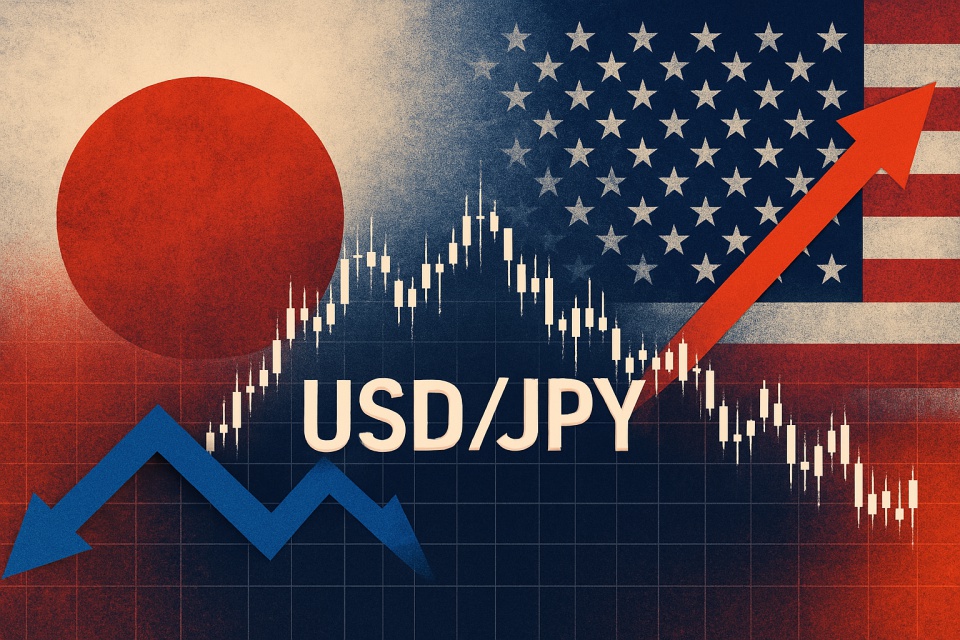In late March 2025, Japan’s Finance Minister announced plans to enhance communication with U.S. Treasury Secretary Scott Bessent regarding foreign exchange policy. While the statement may appear routine, it followed pointed remarks from President Trump accusing Japan and China of unfair currency devaluation.
This development has sparked speculation among FX traders: Are we witnessing the return of currency clause diplomacy? And more importantly, how might USD/JPY react?
In this article, we decode the true intent behind the Japan–U.S. FX talks, explore historical parallels, and outline actionable takeaways for traders navigating a politically charged currency environment.
✅ What You’ll Learn
- Why Trump’s comments on yen weakness matter to USD/JPY traders
- How Japan’s Ministry of Finance controls currency policy behind the scenes
- What history tells us about “currency clause” diplomacy under Trump
- How to interpret recent Japan–U.S. FX talk developments in market terms
- Scenarios for USD/JPY in the short and medium term—and how to trade them
🇯🇵 What Did Japan’s Finance Minister Really Say?
In a parliamentary session held on March 31, 2025, Japan’s Finance Minister Katsunobu Kato stated that he would “communicate closely with U.S. Treasury Secretary Scott Bessent on foreign exchange matters.” While he emphasized that exchange rates should be determined by markets, the timing of this comment drew attention: it came just weeks after President Trump criticized Japan and China for manipulating their currencies to the detriment of U.S. competitiveness.
Kato also underlined the importance of bilateral dialogue through forums such as the G7, signaling a willingness to engage more actively with U.S. counterparts on FX policy—an unusual move for Japan, which typically avoids politicizing currency matters.
🇺🇸 Trump’s Comments on Currency Devaluation: Echoes from the Past
In early March, President Trump stated publicly that both Japan and China should stop lowering the value of their currencies, calling such practices “unfair” to the United States. The yen, while appreciating about 4% YTD, became a political target nonetheless.
This rhetoric strongly echoes Trump’s first term, when his administration inserted a “currency clause” into the U.S.-China Phase One trade deal in 2020. The clause was designed to prevent competitive devaluation and to increase transparency in FX operations.
Could we now be seeing Currency Clause 2.0—but this time, aimed at Japan?
🏛️ The Real Power Behind Japan’s FX Policy: Not the Central Bank
While many assume that the Bank of Japan (BoJ) controls currency policy, the reality is more nuanced. In Japan, the Ministry of Finance (MoF)—specifically, the Finance Minister and the Vice Minister of Finance for International Affairs—holds the legal authority to conduct FX interventions.
Even more critically, behind the scenes stands the powerful MoF bureaucracy, led by the Administrative Vice Minister (事務次官). Often regarded as the most powerful unelected figure in Japanese policy circles, the Vice Minister helps shape long-term FX strategy, working closely with G7 counterparts and international financial institutions.
For FX traders, this means watching MoF rhetoric is often more important than BoJ statements when anticipating currency interventions or policy shifts.
💹 USD/JPY Outlook: How Traders Can Interpret This Shift
📊 Short-Term Scenarios
In the short term, the market may interpret these developments as:
- Verbal intervention bias toward yen strength, potentially putting a ceiling on USD/JPY
- Risk of policy-related volatility around bilateral meetings or G7 announcements
- If Trump rhetoric escalates, traders may price in increased probability of coordinated FX dialogue or intervention
🧭 Medium-Term Possibilities
There are two major directional scenarios:
- Scenario 1: U.S. inflation picks up → rate hike expectations rise → USD bullish
- Scenario 2: Political pressure on Japan intensifies → stronger yen rhetoric → USD/JPY pulls back
Traders should track upcoming economic data (e.g. CPI, NFP) and political tone shifts closely.
🧩 Key Takeaways and Suggested Reading
- Japan’s Finance Minister is signaling increased FX dialogue at a politically sensitive time.
- Trump’s renewed currency criticism may foreshadow a return to “currency diplomacy.”
- The Ministry of Finance—not the BoJ—holds real power over Japan’s FX actions.
- USD/JPY may face near-term resistance due to heightened FX tension.
📚 Recommended Read:
👉 Why Japan Can’t Spend: Inside the Ministry That Silently Rules the Yen
👉 Why Japan Can’t Spend: How Fiscal Law and Bureaucratic Power Shape the Yen’s Future
A deep dive into the real decision-makers behind Japan’s monetary influence.


